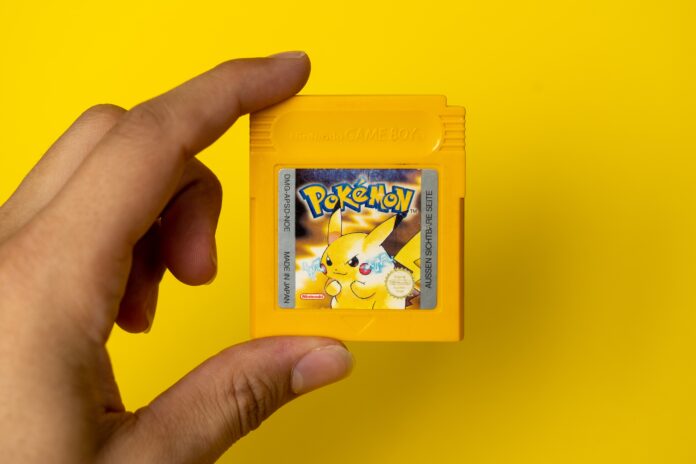Pokémon, the global phenomenon that began as a video game in 1996, has captured the hearts of millions around the world. Developed by Satoshi Tajiri and Ken Sugimori, Pokémon has since expanded into a multimedia franchise spanning video games, trading card games, an animated television series, movies, and various merchandise. The franchise continues to thrive, captivating new generations of fans with its imaginative world filled with adorable creatures known as Pokémon.
In the Pokémon universe, trainers embark on a quest to become Pokémon Masters, capturing and training these fantastic creatures to compete in battles against other trainers. The world is populated by a vast array of Pokémon species, each possessing unique characteristics, abilities, and elemental types such as Fire, Water, Grass, Electric, and more. From the fiery Charizard to the lightning-fast Pikachu, Pokémon come in all shapes and sizes, making them endlessly fascinating to both children and adults alike.
The core of the Pokémon franchise lies in its video game series. The mainline games, released on various Nintendo handheld consoles, allow players to explore different regions, catch Pokémon, and engage in strategic turn-based battles. With each new generation of games, a fresh set of Pokémon is introduced, adding to the already extensive roster of over 800 species.
The games encourage players to build diverse teams of Pokémon, considering their strengths, weaknesses, and synergy to overcome challenging opponents. The strategic element of the games, combined with the thrill of discovering new Pokémon and exploring vibrant virtual worlds, has made them immensely popular for more than two decades.
Pokémon’s success transcends the realm of video games. The Pokémon Trading Card Game (TCG) has become a global sensation, allowing players to collect, trade, and battle with Pokémon cards. The TCG offers a tactile and social experience, with players engaging in friendly duels and participating in official tournaments to showcase their skills.
Furthermore, the Pokémon animated television series has captured the imagination of fans worldwide. Following the adventures of the main character Ash Ketchum and his loyal Pikachu, the show has introduced audiences to new Pokémon, explored different regions, and promoted themes of friendship, determination, and teamwork.
Pokémon has had a profound impact on popular culture and society. It has spawned a passionate community of fans who have formed lasting connections through their shared love for the franchise. The trading card game and video game competitions have created a competitive scene, where skilled players compete for glory and substantial prize pools. Pokémon has also contributed to the phenomenon of “Pokémon Go,” a location-based augmented reality game that took the world by storm, encouraging players to venture outside and capture Pokémon in the real world.
Furthermore, the franchise has expanded its reach through movies, merchandise, and collaborations with various brands, ensuring its enduring presence in the entertainment industry. The relatable themes of friendship, personal growth, and the pursuit of dreams have resonated with audiences of all ages, making Pokémon a cultural icon that continues to captivate hearts across generations.
Over the years, Pokémon has continuously evolved and expanded its universe, keeping the franchise fresh and exciting. Each new generation of games introduces innovative gameplay mechanics, captivating storylines, and a new assortment of Pokémon to discover. This constant evolution ensures that both longtime fans and newcomers can always find something new to enjoy.
The Pokémon Company, responsible for overseeing the franchise, has not been afraid to experiment with different formats and mediums. In recent years, they have explored new avenues to engage with fans. For example, the release of Pokémon: Let’s Go, Pikachu! and Pokémon: Let’s Go, Eevee! on the Nintendo Switch combined elements from the classic handheld games with the popular Pokémon Go mobile app. This unique crossover created a fresh experience that appealed to a wide range of players, bridging the gap between different generations and gaming preferences.
Pokémon has also made a significant impact in the realm of esports. Competitive Pokémon battles have become a major attraction, with official tournaments drawing in thousands of skilled players from around the world. The Pokémon World Championships, held annually, showcase top-tier gameplay and strategic prowess, further solidifying Pokémon as a respected presence in the competitive gaming scene.
Additionally, Pokémon has embraced the power of nostalgia. The franchise frequently releases remakes and reimagined versions of classic games, allowing fans to relive their childhood memories with enhanced graphics and updated features. These remakes not only cater to longtime fans’ desire to revisit beloved regions and stories but also introduce newer generations to the roots of the franchise.
Beyond its digital realms, Pokémon has a thriving merchandise empire. From plush toys and action figures to clothing and accessories, Pokémon’s iconic characters have become collectibles cherished by fans of all ages. The franchise’s widespread merchandise availability allows fans to express their love for Pokémon in tangible ways, creating a sense of community and shared enthusiasm.
Moreover, Pokémon’s influence extends to education and social interaction. The games and animated series teach valuable lessons about perseverance, friendship, and problem-solving, appealing to parents and educators who recognize the educational potential of interactive entertainment. Pokémon Go, in particular, encouraged players to explore their surroundings, promoting physical activity and community engagement.
Looking ahead, Pokémon shows no signs of slowing down. With the recent release of Pokémon Brilliant Diamond and Pokémon Shining Pearl, faithful remakes of the beloved Pokémon Diamond and Pokémon Pearl games, and the highly anticipated Pokémon Legends: Arceus, an open-world RPG set in the Sinnoh region, the franchise continues to innovate and captivate audiences with its imaginative storytelling and engaging gameplay.
The success of Pokémon can be attributed to its ability to adapt and appeal to a wide range of audiences. While initially targeting younger players, the franchise has grown to attract fans of all ages. The games’ accessible mechanics and charming characters make them appealing to children, while the strategic depth and competitive aspects cater to older players seeking a challenge. Pokémon’s cross-generational appeal has fostered a sense of shared experiences and nostalgia, as parents pass down their love for the franchise to their children, creating a bond that transcends age barriers.
Furthermore, Pokémon has fostered a vibrant community that celebrates the franchise’s rich lore, competitive scene, and creative fan works. Online forums, social media groups, and dedicated fan websites provide spaces for enthusiasts to connect, share their experiences, and discuss strategies. The community-driven nature of Pokémon has led to fan art, fan fiction, cosplay, and even fan-made games, showcasing the immense creativity and passion inspired by the franchise. This sense of community further strengthens the enduring legacy of Pokémon, as fans continue to support and engage with the franchise in their unique ways.
As Pokémon continues to evolve and expand, it remains a cultural phenomenon that has left an undeniable impact on popular culture. With its timeless themes of friendship, adventure, and personal growth, Pokémon has become more than just a franchise—it has become a cherished part of many people’s lives. As new generations discover the joy of capturing Pokémon, embarking on epic journeys, and forming lasting connections, the Pokémon phenomenon will undoubtedly continue to captivate hearts and inspire imaginations for years to come.






















